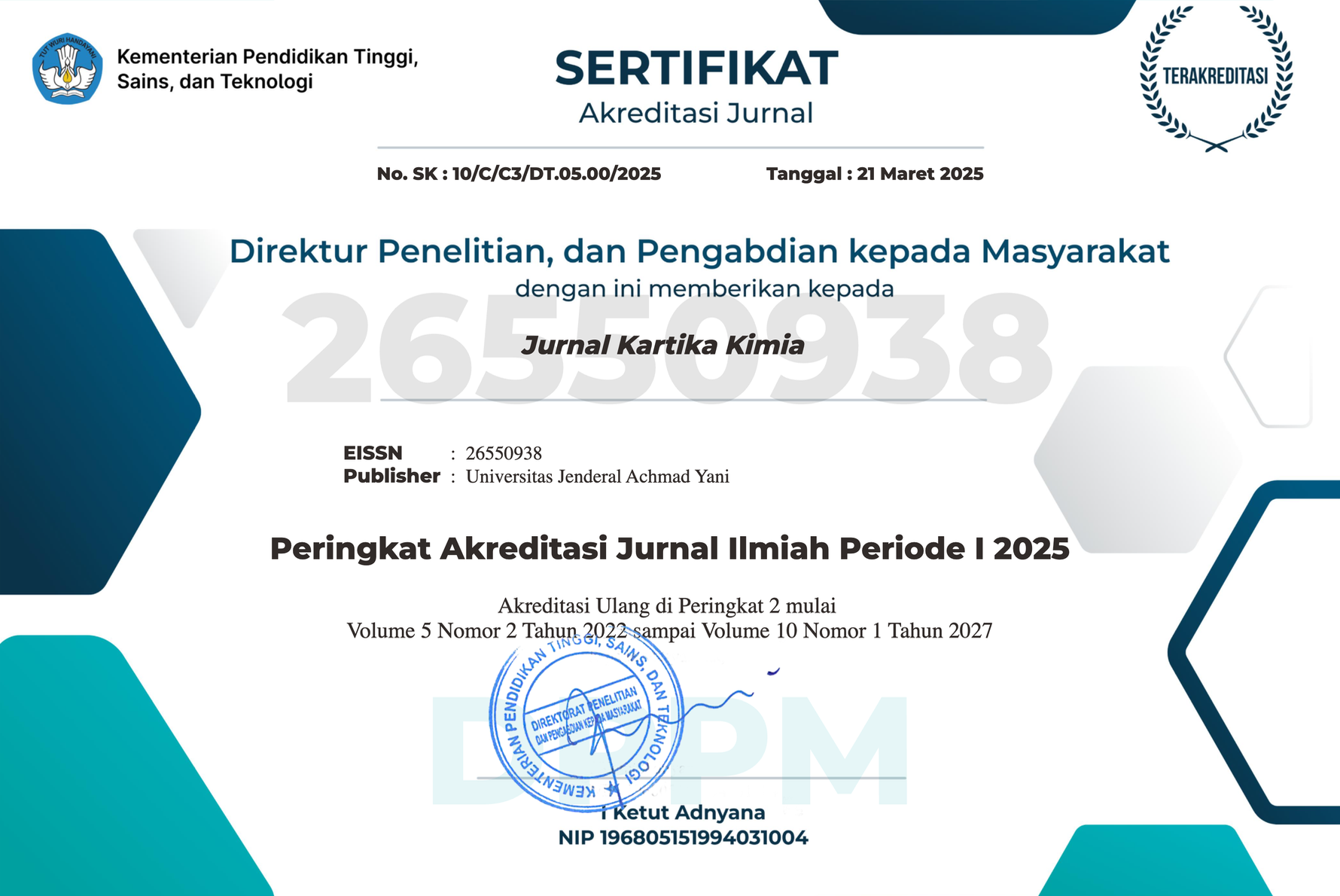Natural Preservation of Woods using Sambiloto (Andrographis paniculata) Leaf Extract for Making Wooden Batik Crafts
Abstract
Indonesia is one of wood craft producer. Indonesian crafts have been exported to many countries, such as Japan, Europe and America. Commonly, that crafts used chemical preservatives that identified not safe for environment. A lot of countries had banned the use of toxic preservatives such as arsenic and chromium-based preservatives. Therefore, it is important to use natural preservatives that are safer for human being and the environment. This research aimed to know the ability of Sambiloto (Andrographis paniculata) leaf extract to use as wood preservatives and to determine the preservative treatability of two woods, Mahoni (Swietenia mahogany) and Matoa (Pometia pinnata) woods as material for making interior products such as wooden batik crafts. Matoa and Mahoni wood were preserved by hot bath at temperature of ± 80oC using Sambiloto leaf extract with variation of concentration of 10%, 12.5% and 16.67% for immersion time of 1 hour, 2 hours and 3 hours. The retention value of each variation was calculated and compared with the preservative value for the interior product of SNI 03.5010-1.1999 (≥ 8 kg/m3). The results show that preservation of Matoa wood for indoor uses can be done using Sambiloto leaf extract with concentration of 12.5% and processing time of 2 hours. However, the retention values for Mahoni woods were lower than SNI for all treatment because of its extractive content that make it hard to be preserved.
Keywords: batik, wooden crafts, natural preservation, sambiloto























